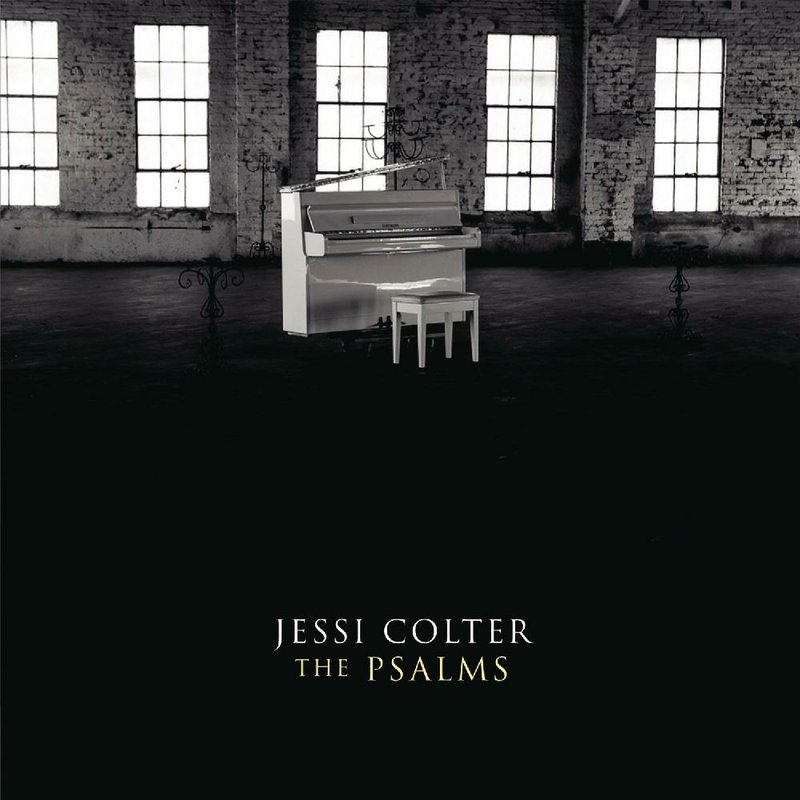The beautiful voice of Jessi Colter is rarely heard these days, except on radio stations that occasionally play her biggest hit, the chart-topping, aching 1975 country and pop ballad "I'm Not Lisa."
She was also part of one of country music's biggest-selling albums, 1976's Wanted: The Outlaws, with her husband, Waylon Jennings, Willie Nelson and Tompall Glaser. After several more hits, Colter's career stalled by the mid-1980s. Since Jennings' death in 2002, she has released just one album, 2006's fine Don Was-produced Out of the Ashes. She is also the mother of outlaw country singer Shooter Jennings.
If her new album represents a comeback of sorts, it's not one created by calculation, market research or conventional wisdom. It was born of inspiration in her living room, sitting at a piano with her Bible.
The Psalms (Legacy) is a musically spare, emotionally potent and moving testament. The deeply personal recording reveals a still-lovely voice that pours from the heart. Indeed, from her very soul.
Colter set to music several of the haunting and beautiful verses from the book of "The Psalms," part of the Christian Bible and the Hebrew Bible.
But before you dismiss this as just another country gospel recording, understand that Colter's album is much closer in spirit and style to Johnny Cash's stark American Recordings album and Leonard Cohen's later work, along with songs such as Cash's "Hurt" and Patti Smith's cover of Marian Anderson's classic spiritual "Trampin'" than it is to the recent best-selling gospel album by Reba McEntire.
In the excellent liner notes, the producer, musician and author Lenny Kaye (Patti Smith's collaborator) explains the album's genesis:
"One morning in 1995, while working with Waylon Jennings on his autobiography in Nashville, I came into the living room to find Jessi Colter at the piano, singing the Psalms. She would place her fingers on the keys, forming simple chords and expressing melodies as they came to her. There was no forethought, no conception of composition; only the intuitive expression of the spirituality behind these most ancient of sacred poems, the divinity they wellspring within each of us. I listened transfixed while she paged through the Old Testament, choosing each psalm, finding within them the emotive voice of the Shepherd Boy, the Warrior, ultimately the King that is David. It was one of the most beautiful expressions of belief I have ever witnessed."
That beauty was captured in two recording sessions in 2007. There was no rehearsal; each psalm was recorded in one or two takes. On some, Kaye played guitar. As he worked with the recordings over the next decade, Kaye brought in other musicians -- organist Al Kooper, percussionist Bobby Previte and a few others. The music is minimalist; often subtle, atmospheric. Eight of the melodies were written by Colter; Kaye collaborated with her on two others and he wrote two more. Kaye's production is supportive, rootsy, spare and elegant.
The Psalms has the glow of inspired improvisation, of being in the moment.
Colter's voice -- vulnerable, yet confident and strong -- stirs listeners into an experience of spirituality that feels timeless and intimate. Her connection to these verses is bell-clear. It is a cry to the divine, a praise, a soothing balm. The Psalms is universal in its expression of love and compassion, of hope and facing fear with faith.
Each psalm's arrangement is different; they draw the listener deeper into each verse. The chosen psalms are rooted in love, reconciliation, compassion. A few reflections on several of the tracks:
• Previte's percussion on "150: Praise Ye the Lord" takes on a choral-like quality near the end, a metaphor for all of creation raising voices in praise.
• A rhythmic, soothing melody lifts "136: Mercy and Loving Kindness," a psalm that reassures us that God's loving kindness "endures forever."
• The music for "114: And the Mountains Skip Like Rams" builds from an extended low-key musical intro to a climactic storm as Colter's voice mirrors the turbulent spiritual and emotional landscape. Paul Dugan's arco (bowing) bass playing resonates soul-deep.
• On "45: My Song to a King," Kooper's playing is majestic and soaring. On this track, he plays keyboards, guitar, French horn and adds the sound of locusts. This psalm draws an especially intense, emotional vocal from Colter.
• The 23rd psalm is, for many, a treasured favorite. "23: The Lord Is My Shepherd" is especially tender. Colter's piano and Kooper's organ entwine in spellbinding fashion. Previte's percussion and Kaye's pedal steel add discrete, rich textures.
• Ethereal backing vocals by the Black Sea Hotel (Willa Roberts, Sarah Small and Shelley Thomas) add an ethereal, haunting quality to "21: Be Thou Exalted."
It's a long way from "I'm Not Lisa," "What's Happened to Blue Eyes" and Wanted: The Outlaws to the transcendent The Psalms. Colter, 73, follows a path that springs from within, to seek and respond to the Divine. Regardless of one's religious beliefs, this poignant, haunting and elegiac work speaks to one's spirit. It may take a few listens for it to sink in, but give it some time. It will.
Email:
ewidner@arkansasonline.com
Style on 04/04/2017
